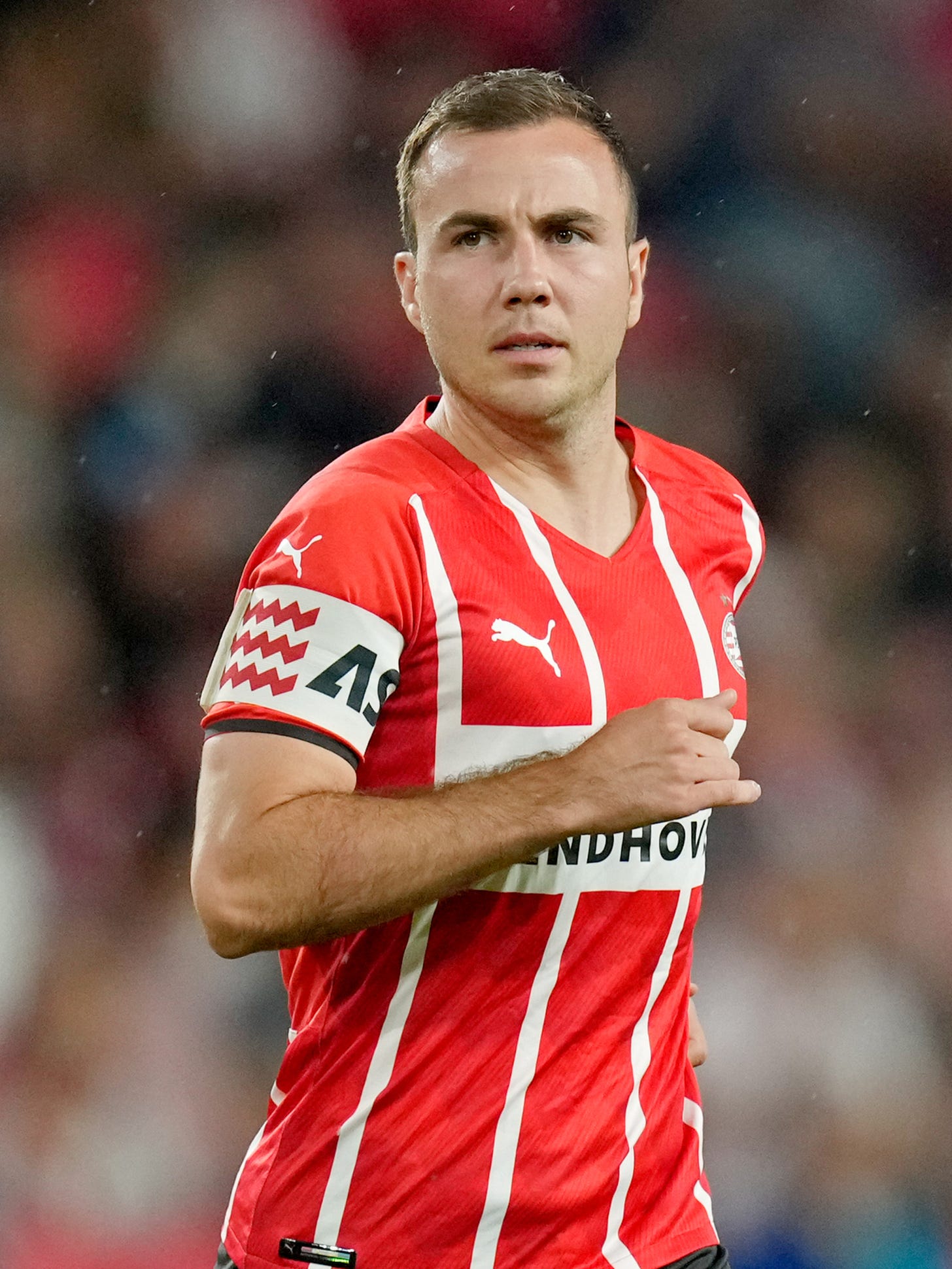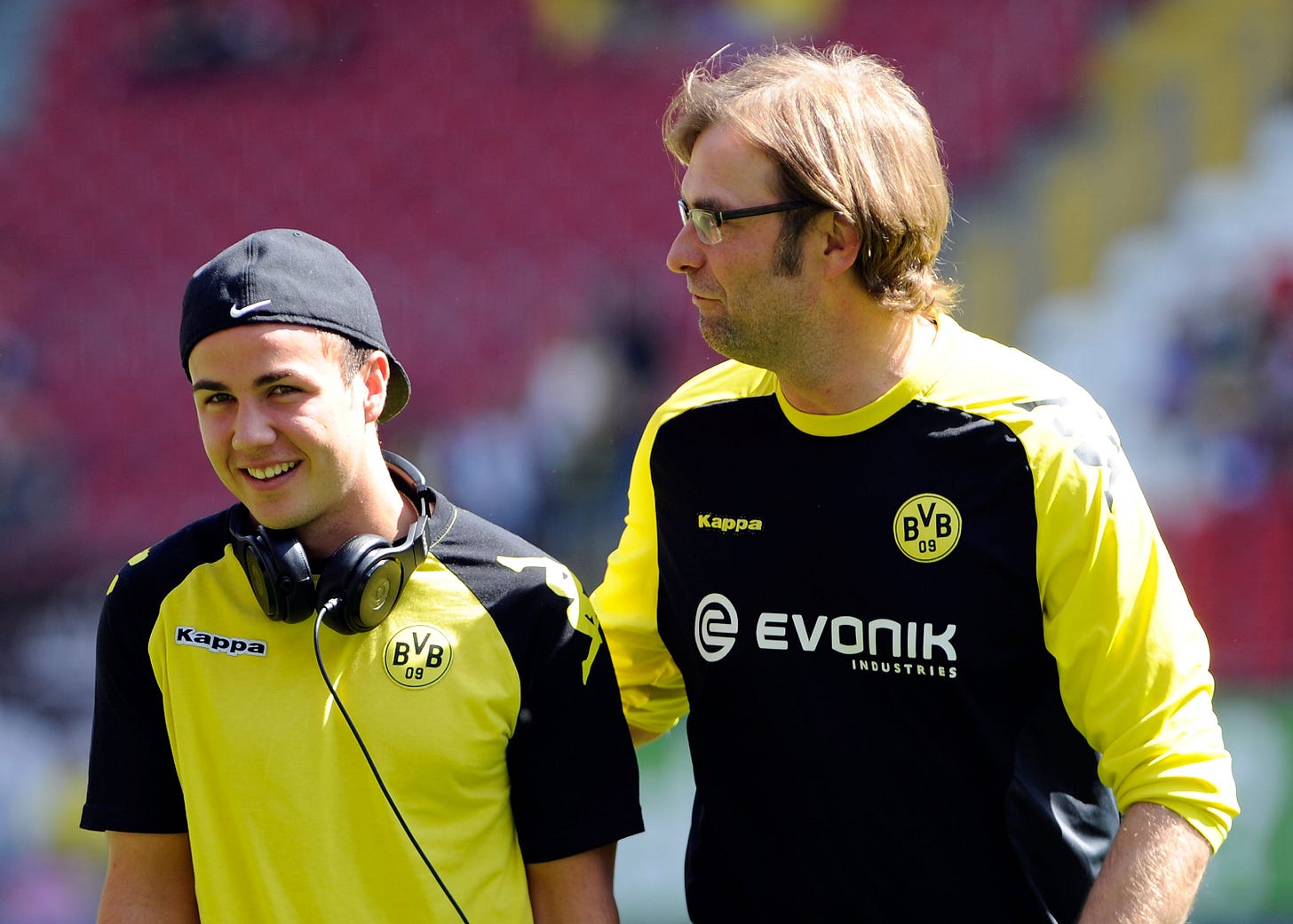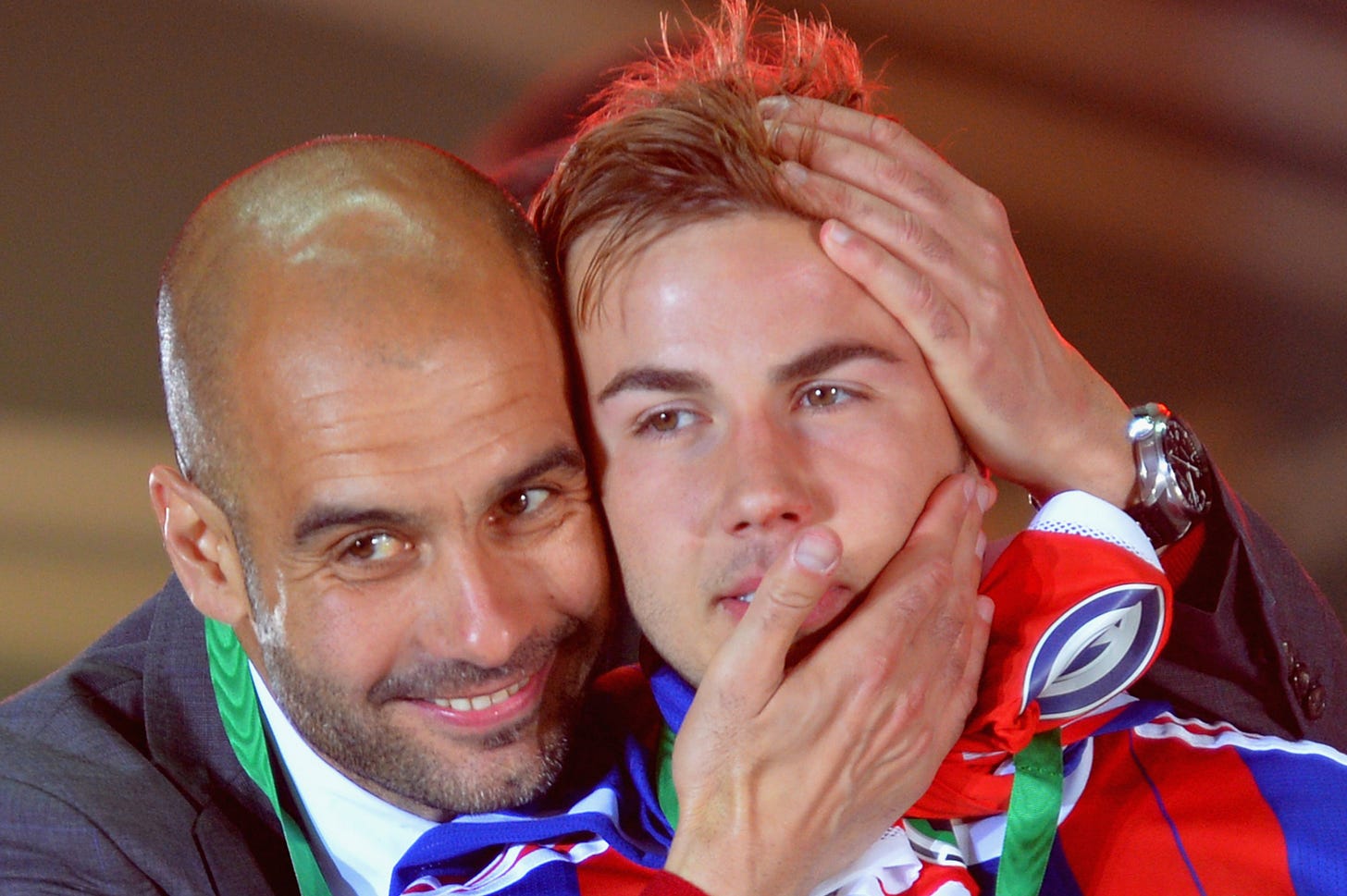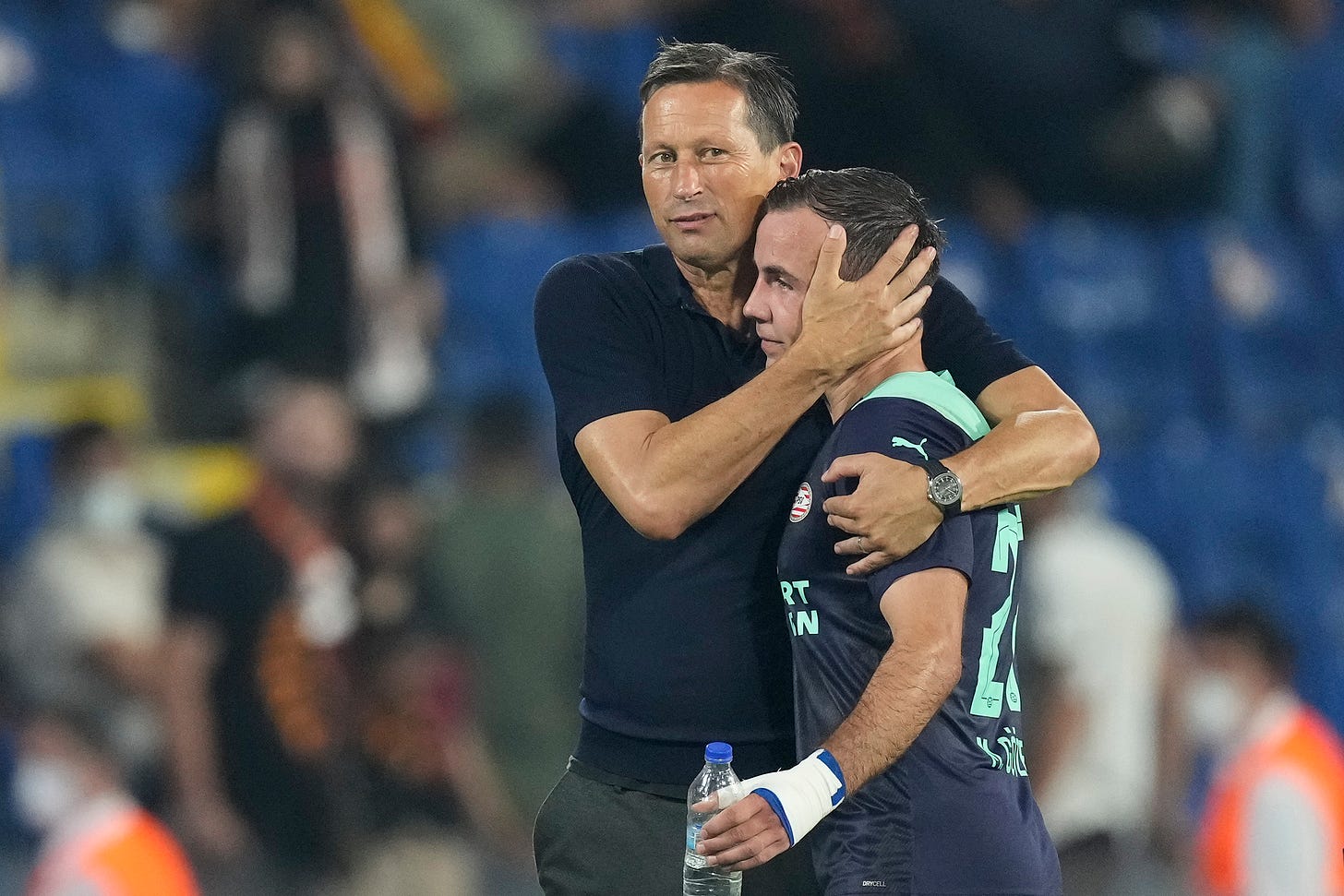Welcome to The Home of Football, a podcast by 433. In this podcast we tell you timeless stories from the world of modern football. Our first episode is all about Mario Götze’s unexpected journey to PSV. The German Messi surprised the world of football when he signed for the Dutch club on deadline day in 2020. We visited the former Borussia Dortmund and Bayern Munich star to find out how and why he signed for the Dutch club. To get more context we additionally spoke to the PSV fans who found out Götze was going to sign for their club, as well as Raphael Honigstein, the renowned expert on German football.
You can listen to the podcast here on Apple Podcasts or here on Spotify:
If you prefer to read, we transcribed a part of the podcast for you below.
-
433: Hi Mario, you were born in the Bayern area and moved to Dortmund as a kid. What kind of impact did that have on you?
Mario Götze: Because of my father’s work as a professor, we moved around a bit when I was younger. We also lived in Texas for a couple of years. Then we moved to Dortmund, which had a great impact on my life. I started playing football and was picked up by Borussia Dortmund. This club gave me almost everything. I was very lucky Jürgen Klopp was the manager at that time. I was very young and he helped me to become a professional football player, to integrate in the team. He meant a lot to me and still does. We won the championship the first year, the second we won the double and then we reached the Champions League final. So we had quite a successful time, but at the same time he helped me to stay humble, be right in my mind and focus on football. Sometimes he had to correct me off the pitch, when maybe I was too late, sometimes on the pitch, if I didn’t do the defensive work. He could be very hard.
You transferred to Bayern Munich in 2013. Dortmund fans were mad. You even had to be protected by the police for a while. How do you look back at that transfer now?
I made the decision in January that year. Bayern announced Pep Guardiola would become their manager and I wanted to be a part of that. I just wanted to take the next step, to work with Pep. I didn’t think about all the other things surrounding the transfer. I had a really good time at Dortmund, with Jürgen, the team, but nevertheless I wanted to do this to improve. It was strange, because I didn’t think it would affect so many people. All of a sudden everything turned upside down. This was quite new for me. I had to handle this situation. Even people who aren’t really into the Dortmund-Bayern rivalry were mad a bit. It was very strange for me to experience this.
What was it like in your experience to work with Pep Guardiola?
I learned a lot on the pitch. He was phenomenal. I had never seen before how he sees space on the pitch, how he changes formations. Keeping the ball for such a long time to be dominant on the pitch, that is what I learned from him in Munich. We had a very successful time with a lot of titles. This was a good time for me. I could also learn a lot from players like Franck Ribéry, Arjen Robben, Xabi Alonso and Sebastian Schweinsteiger, because I was still very young back then.
Of course, the whole world knows you as the player who decided the 2014 World Cup final in Brazil. How do you look back at that now?
I was lucky to get in that moment, to be involved in that goal. But it was not done when I scored, we still had like seven minutes to play. I remember they had a big chance a bit later. In the end, the whole process with the team was great. The setup was very nice in Brazil, the group of people was great. But when we came back to Berlin and actually saw the people and how they reacted and celebrated with us, that was amazing to see. It was great to share the moment with the team, but it was amazing to share it with the people and realize what we had done and achieved. This was quite unique.
After that season you ran into some physical difficulties. You returned to Dortmund from Bayern and then stopped playing for six months due to a metabolic disorder. How was that for you physically and mentally?
It was tough, especially if you really try very hard to do everything you’re capable of and you realize it’s not working. This was not easy physically and mentally. But in the end it was a good experience, because I found out how important it is to rest a bit, to make priorities, to choose the right mental mindset. I am very happy that I had the chance to analyze all these things and make the best out of this situation. This process was very important for me and my career. The years before I didn’t even stop training when I was on vacation, I always kept going. I had to change my routines a bit.
You returned to play at Dortmund, then a couple of years later your contract expired in the summer of 2020. What was that summer like in the Götze household?
My wife was pregnant, Covid was there, my contract would expire, so this was a very special time. All these things impacted the situation. But due to the birth of my son I was very distracted. My perspective changed when I became a father. Our baby came six to seven weeks too early, so we had to stay like three weeks at the hospital. I didn’t waste a single thought on football, because I realized what was important. What mattered was that we got home safely with our child. I’m just happy that we managed to get home safely and he’s happy and healthy.
Top clubs from Italy were trying to sign you. You were talking to Bayern Münich. There were options in the United States. Why did you decide to sign for PSV on deadline day 2020?
I remember it very clearly, because it was the final day of the transfer window and I had to make a decision, otherwise I couldn’t compete in international competitions. For me it was important to stay close to Dusseldorf and to play in a European competition. I also had a good conversation with Roger Schmidt, the German manager at PSV. So this was the right thing for me to do back then. I was happy to make the decision for PSV Eindhoven, to keep living in Dusseldorf and have the best situation for my child also. It was interesting to see how the media reacted. But it is a decision I made for my family and myself. That’s the most important thing. I signed for two years and have a year to go. Hopefully we will have a successful season and I will be able to play on this level for years to come.
You are 29 years old now and you’ve had a great career so far, but you still have years to go as well. How do you look back at what you have achieved till now?
When I look back at my career, I never thought I would have all these memories. I am really happy it happened this way. I am in a really good place right now because I am a husband, a father and I enjoy what I love to do and that’s playing football. Family is probably the most important thing in my life, especially since I’m a father. So for me that’s the best thing that happened to me.
-
Want to listen to the entire podcast? You can do that here on Spotify or here on Apple podcasts. Pictures by Getty Images.







